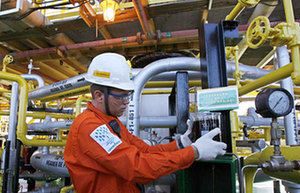BEIJING -- Chinese companies' appetite for mergers and acquisitions (M&A) declined in the first half of 2014, but the outlook remains positive thanks to reforms and changes in the macroeconomic environment, consultancy KPMG said in a latest report.
The appetite for M&A among Chinese companies -- as measured by predicted price-to-earnings ratios -- dropped 6 percent between January and June 2014, equating to an increase of only 8 percent over the last 12 months.
Meanwhile, global appetite for M&A grew 16 percent from a year ago, according to KPMG's latest M&A Predictor, which was sent to Xinhua on Monday.
Rupert Chamberlain, head of KPMG China's transaction services, said that sentiment in China has been hit by a combination of factors, impacting both local investor appetite and the market's relative attractiveness for global fund allocators.
An anti-graft drive, measures to keep property prices at affordable levels and export competitiveness have dampened broad demand and impacted the profitability of enterprises, as evidenced by declining forward multiples, Chamberlain said.
On the other hand, the state sector reform agenda and the longer-term trend driven by macro issues -- such as demographics, urbanization and new technologies -- will continue to attract significant investment in specific sectors, so KPMG maintains a positive near-term outlook for the China M&A market, he added.
Anticipated capacity for M&A, as measured by the net debt to EBITDA (earnings before interest, tax, depreciation and amortization) ratios, rose 17 percent in China year on year, showed the report.
This was higher than the global average of 13 percent for the same period. However, it is yet to translate into deal completions, which continued a downward trend.
According to KPMG analysis, deal values for Chinese outbound M&A edged down 4 percent year on year to $35.6 billion in the first half of 2014, while the number of deals dropped nearly a quarter to 167.
Highlights of outbound M&A include several deals completed in the natural resources sector in Australia, Canada and Peru.
In terms of inbound investment, there was a sharp drop in both values and volume. A total of 204 deals were recorded in the first half, a 27-percent drop from 280 deals in the same period last year. Deal value was down 24 percent to $10.8 billion.
Consumer goods and services led all other inbound M&A sectors through the first half. Despite a slight decline in deal value versus 2013, transactions of a significant size continue to be prevalent in the diverse consumer goods and services sub-sectors. Meanwhile, the materials sector also bucked the downward trend seen in 2014.
Jeremy Fearnley, head of M&A for KPMG Hong Kong, noted that China has supported the outbound ambitions of its companies with a recent relaxation of the threshold at which companies must seek government approval for deals. As of May 8, this has been adjusted from $300 million to $1 billion.
This will allow Chinese companies to be more active in competitive bid situations. But difficulties still exist in terms of funding, due to the capital requirements for onshore borrowing in the Chinese mainland, according to Fearnley.
Therefore, outbound deals are likely to increasingly rely on debt and equity funding offshore, where lenders are generally more aggressive and the cost of finance is cheaper, he said.
In terms of sectors, KPMG predicted the consumer space will continue to be a bright spot in the M&A arena for both inbound and outbound deals as multinationals, domestic companies and private-equity firms invest to compete for a share of the growing Chinese middle classes' wallet, Fearnley added.
|
 |
 |
| Top 10 overseas M&As by Chinese companies | Merger to grow China's private health care |
